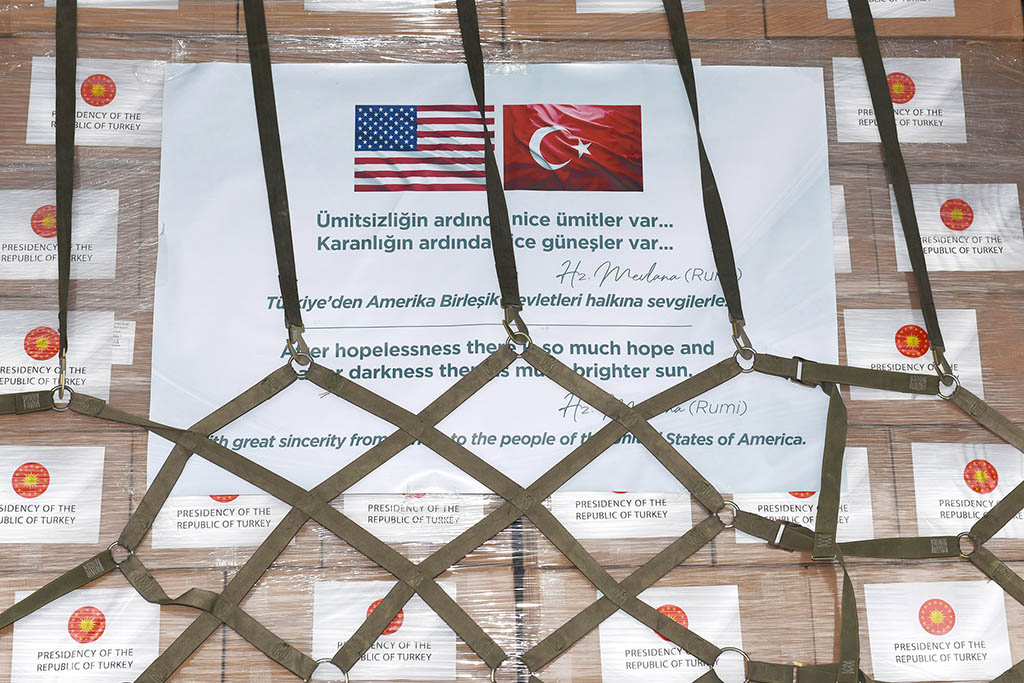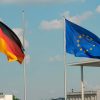
The COVID-19 pandemic has led to unprecedented crises and it is expected to change various dynamics in the world. However, Turkey-European Union relations are not necessarily one of them. There is a wide consensus on the dysfunctionality of the membership talks, they are at a stalemate and further channels of dialogue are surely needed. Even if the Turkish government’s efforts in times of COVID-19 pandemic –such as donating medical equipment to hardly hit countries or participating in the Coronavirus Global Response Conference and pledging to contribute– are pleasing developments, they are not necessarily sufficient for a fresh start. Portraying them as a breakthrough in the relationship will widen the perception gap that exist between the Turkish and the European sides. Taking into consideration the interconnectedness between the two, it is wiser to build the next attempt to revitalize relations on something more solid. German Presidency of the Council, which will start on the 1st of July, could be a good opportunity to do so.
Coronavirus diplomacy and its dimensions
For understanding the dynamics behind Turkey’s coronavirus diplomacy, it is important to know that Turkey has donated medical supplies to various EU member states (Italy, Spain, France and also the United Kingdom outside of the EU). It has also joined Coronavirus Global Response Conference and pledged to contribute. The words of appreciation of the European Commission President Ursula von der Leyen were given as headlines by pro-government media outlets in Turkey. In addition to that, Turkey has had the desire to situate itself as an example to follow when it comes to fight against the pandemic, underlining the resilience of the Turkish health system. According to European Centre for Disease Prevention and Control, Turkey has 187,685 reported cases and 4,974 deaths – which is comparatively low when you proportionate it to country’s population.
Furthermore, Turkish officials were conveying the idea of Turkey increasing its importance and the volume of its trade with the European Union in the post-pandemic world. This claim was mostly based on the European intention of reallocating supply chains geographically closer. Clearly this is very valid within the debate of strategic autonomy and the new industrial policy. The possibility of getting a juicy part of the repositioning of the supply chains would be an important advancement for already troubled Turkish economy. Turkish officials think that the country is a great candidate for it with existing economic ties and a Customs Union already in place (which is waiting for modernization). Way better than the Western Balkans, and also African countries, other candidates on the list of repositioning for their geographical proximity.
This is clearly an opportunity for Turkey since the European Union is the most important actor for Turkey when it comes to the economy. According to the data provided by the European Commission, in 2019 Turkey was the EU’s 5th largest trading partner. The European Union, on the other hand, is by far Turkey’s number one partner both for the imports and exports –in addition to being its primary source of investment. Turkish economy is hit by emergency measures, economic slowdown and halt to international trade. This makes the economy the most powerful leverage the Union has on Turkey and a key dimension of Turkey’s coronavirus diplomacy. The relationship, on the other hand, requires a multifaceted analysis.
Turkey-EU relations: a multifaceted relationship
Followers of Turkey-EU relations know that every once in a while, there is an intention to get things on track. This is not necessarily done with concrete steps towards that direction and it is mostly words than firm actions. Coronavirus diplomacy has been an example in this line. There are so many items on the agenda, the most prominent being the following.
Accession negotiations
Dysfunctional, effectively at a standstill. There are Council conclusions from June 2018 underlining that “accession negotiations have therefore effectively come to a standstill and no further chapters can be considered for opening or closing and no further work towards the modernisation of the EU-Turkey Customs Union is foreseen”. Until now, 16 chapters are opened, one is provisionally closed.
Democracy, basic rights and principles & rule of law
This item has been one of the core obstacles in front of advancing the relationship, even for developments that are mutually beneficial for Turkey and the EU (like the modernization of Customs Union). Turkey is now labelled as a candidate country that do not fulfil the Copenhagen Criteria. The rule of law dimension is frequently underlined by many in Europe. It is not only an issue of shared values and principles, but also a guarantee for protecting European citizens and investments in Turkey
Turkish foreign policy and bilateral relations with member states
Turkey has left behind the times when the West (both the European Union and the United States) was its most important strategic ally. Now it is all about a geopolitical juggle and balancing acts that follow. The balancing acts by the Turkish government are there to show that Turkey is not necessarily shifting towards any other concrete player –generally assumed to be Russia. Turkey just has a multidimensional foreign policy. The announced aim of this –more visible after the country’s transition to presidential system– is reducing Turkey’s dependency to the West. It is also called strategic autonomy in the Turkish context.
This assertive foreign policy, which does not shy away from using force unilaterally, has been clashing with interests of various member states. Cyprus and Greece are clearly on the top of the list, but Italy and France are also following when it comes to the Eastern Mediterranean. When bilateral tensions rise between Turkey and concrete member states, it is not so easy to get along with the European Union as an institution.
As long as Turkey’s economic troubles deepen, its assertiveness in foreign policy will increase. National geopolitical ambitions always play well in domestic politics. There will be no alterations in Ankara’s foreign policy ambitions, be it Syria, be it the Eastern Mediterranean. This is why, further dialogue in this area will be the key in revitalizing the relationship.
Clearly, migration has a key role in this aspect. We should not forget that right before the pandemic hit us all hard, Turkey moved Syrian asylum seekers living in Turkey to the Greek border. Complaining rightfully about the unfair burden the country has while hosting close to 4.1 million refugees according to UNHCR, Turkey will look for concessions in this area. This issue will come back clearly in the fall.
How to close the perception gap?
Before the pandemic, the situation in Turkey was quite complex for the government. Justice and Development Party (AKP) had lost municipal elections in Istanbul and Ankara in 2019 –which had been a moral boost for the opposition. The economy was not necessarily doing good. The Turkish foreign policy, more assertive and more multidimensional since the country’s transition to the presidential system, had already been a key troublemaker for Turkey’s relations with its European allies. The pandemic hit the world in this context for Turkey.
Turkey wanted to use humanitarian aid as a tool to make things better with its European neighbours. We have witnessed positive developments and kind words. However, this is not necessarily a sufficient condition to revitalize the multifaceted relations between Turkey and the European Union. Concrete steps are needed. German Presidency of the Council is just around the corner. Turkey should use its ties with the country to start a new process of healing.


